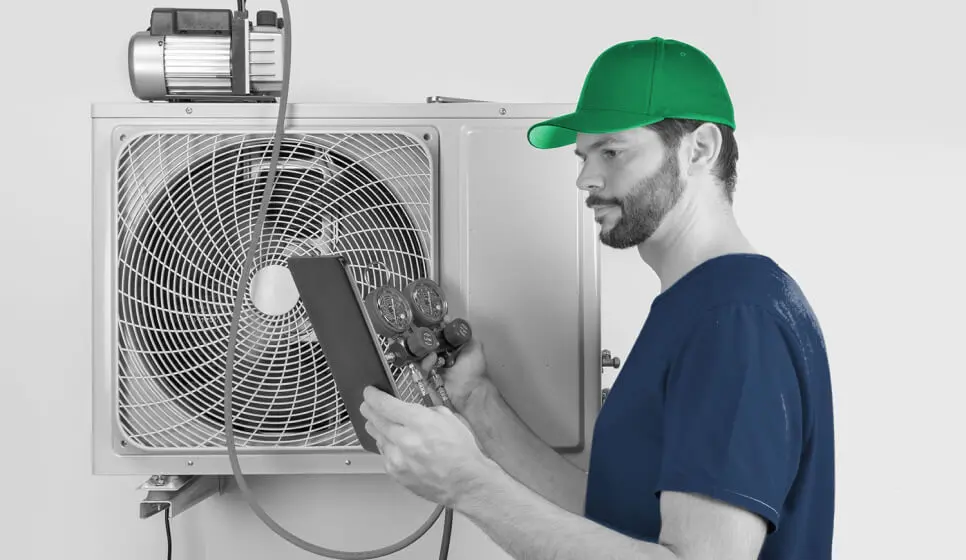Each year, more and more Australian homes get some sort of air conditioning system.
Currently, more than 74% of homes in the country are equipped with air conditioning, and that number continues to grow.
But as we all long for the comfort of a climate controlled home, we have to be cognisant of the costs.
A recent survey found that 7 out of 10 Australians believe that their air conditioner is responsible for the greatest part of their electricity bill.
With that, many people have decided to cut back on how frequently they use their air con.
The same thing goes when considering how and how often to heat your home in the winter.
Many people are stifled by the costs of gas and the inefficiencies of gas heating in their home.
So, if you are using gas to heat your home, you might find yourself in a position where you have to compromise a bit of warmth and comfort for the sake of your energy bill.
But does that have to be the case?
How heat pumps can help save money
What's a heat pump?
If you're looking to add an air conditioning unit to your home or upgrade your current unit, the choice you make could benefit your bill in the summer and winter months.
Reverse-cycle air conditioners, or air-source heat pumps, are energy efficient and save you money through the summer over many other air conditioning models.
But what makes them really special is that they can also serve to heat your home in the winter without the use of gas.
Many people (even owners of reverse-cycle air conditioners) are not aware that these units serve as cooling and heating devices.
Additionally, they are much more efficient than ducted heated systems, which are known to experience failures.
How do heat pumps work?
When used in the winter, heat pumps serve as a sort of space heater and harvest renewable energy from the heat that is already in the air outside of your house.
In other words, they provide up to 4.8 units of free heat for every 1 unit they use!
But what about purchase costs?
Aren't reverse-cycle air conditioners more expensive than single mode air conditioners?
You would think that because these units serve dual purposes, they'll cost twice as much.
However, this is not the case.
While reverse-cycle air conditioners do cost more, the cost difference is often minimal.
Some units only cost about $50 more than their less useful counterparts.
And when considering the difference in purchasing costs, think more about the potential savings in heating costs and less about the upfront purchase cost.
That money will come back to you.
In fact, the University of Melbourne Energy Institute and the Alternative Technology Association reported that using a heat pump could save you as much as $1,700 per year.
This extreme savings amount has a lot to with rising gas prices, falling electricity prices, and more efficient heat pump technology.
Furthermore, as more and more people realise the inefficiencies of ducted-gas heating, they will appreciate the luxuries and cost savings of heating through reverse-cycle air conditioners even more.
And the reverse cycle technology that is available with air conditioning units is also available for hot water systems.
What about water heating?
Hot water system heat pumps heat water with heat that is extracted from the air, water, or ground.
And by reusing energy found in other places, you can save money on water heating.
Water heat pumps run on electricity, like many other conventional water heaters, but the way they source their energy makes them a much more economical, greener solution to heat your water.
And while the cost to heat water might sound minimal, the average household can use about 25% of its total energy on water heating!
Water system heat pumps are best for those who have limited space and no access to solar energy or gas.
And because of the way they function, they work best in warm climates, and might not be the best solution for climates with long, harsh winters.
So, if you're in a position to upgrade your air conditioning or water heating system, consider an upgrade that uses reverse-cycle technology.
This will give you all the benefits of having an energy efficient, new, reliable system, and the ability to save money by cutting out gas and other high energy costs.
Some who have made the switch report that the heating portions of their energy bills are now a third of the cost they used to be!
With savings that substantial, even those who may not have been ready for an upgrade may want to consider investing in a new heat pump system.
Our service is free to use and takes the legwork out of having to compare plans yourself.
Give it a go and save today.
COMPARE & SAVEThis guide is opinion only and should not be taken as financial advice. Check with a financial professional before making any decisions.



